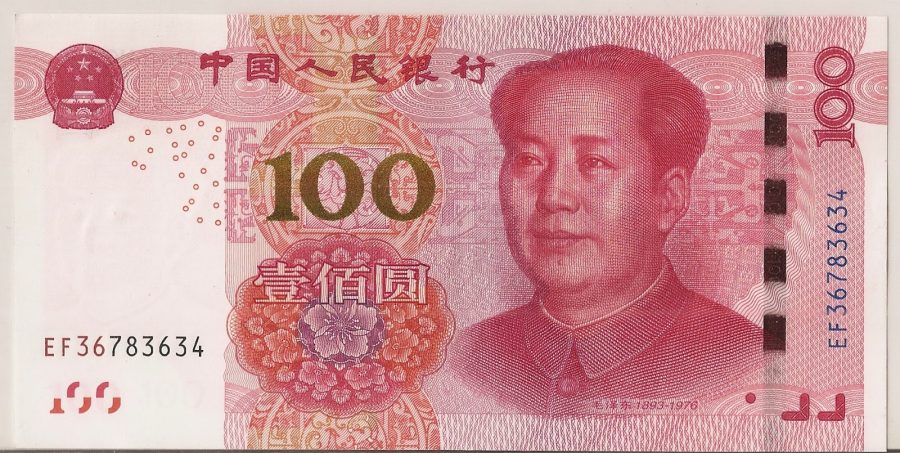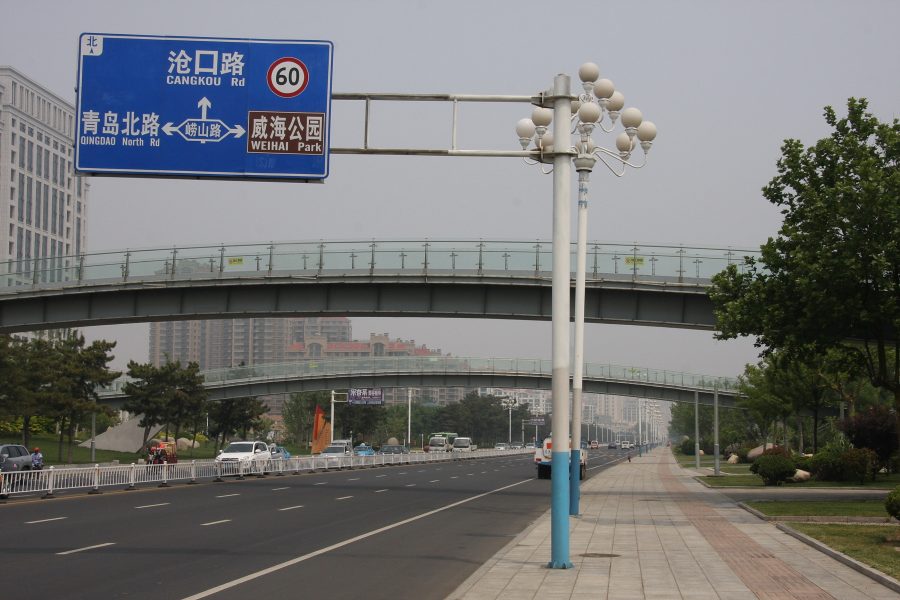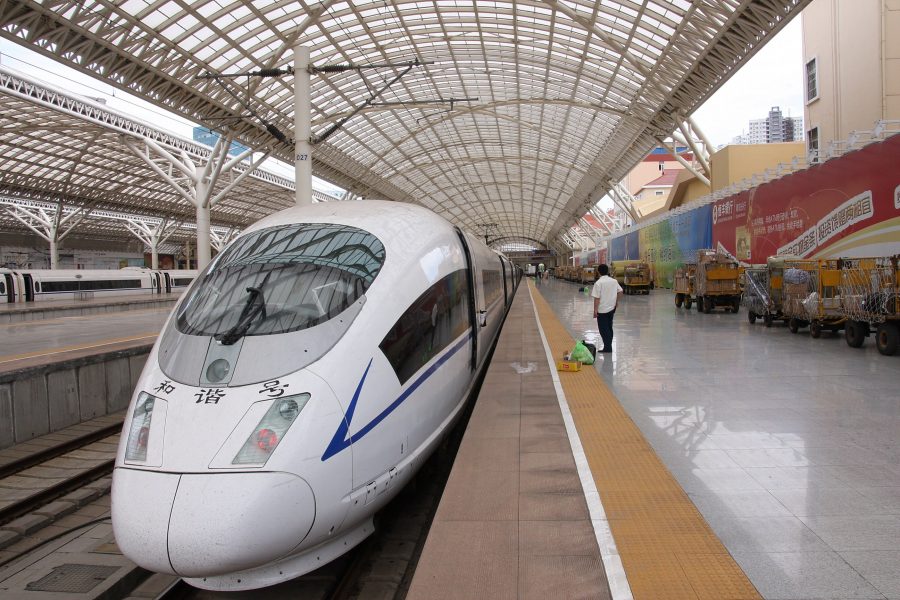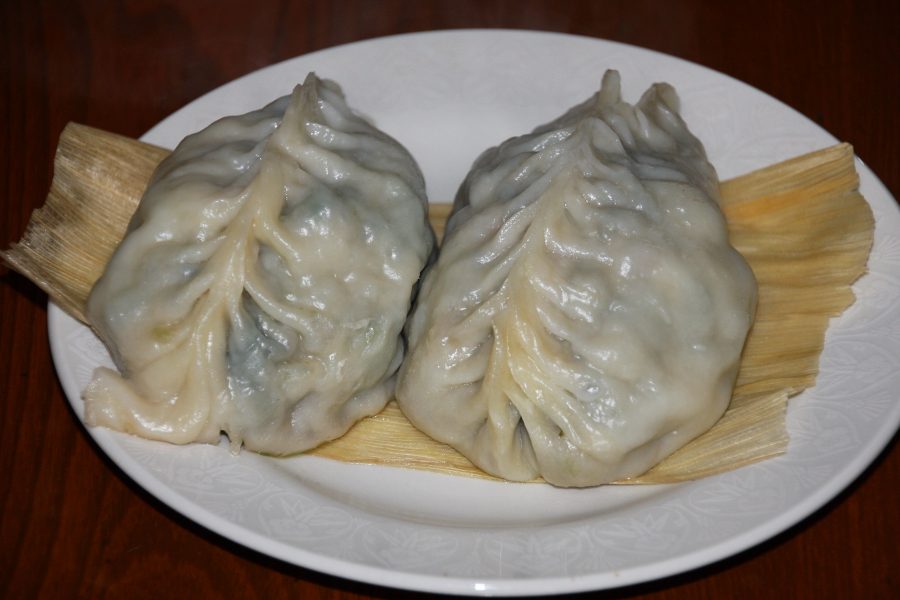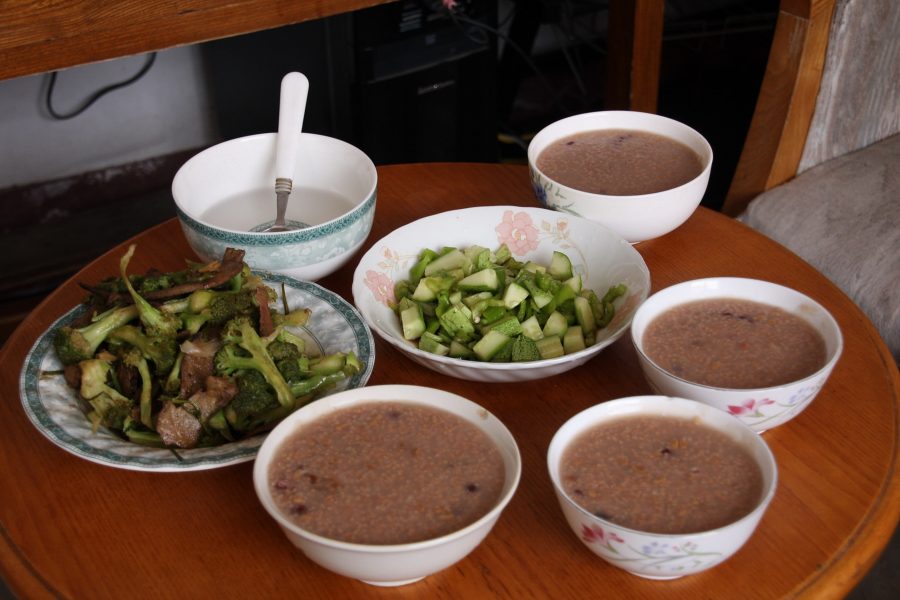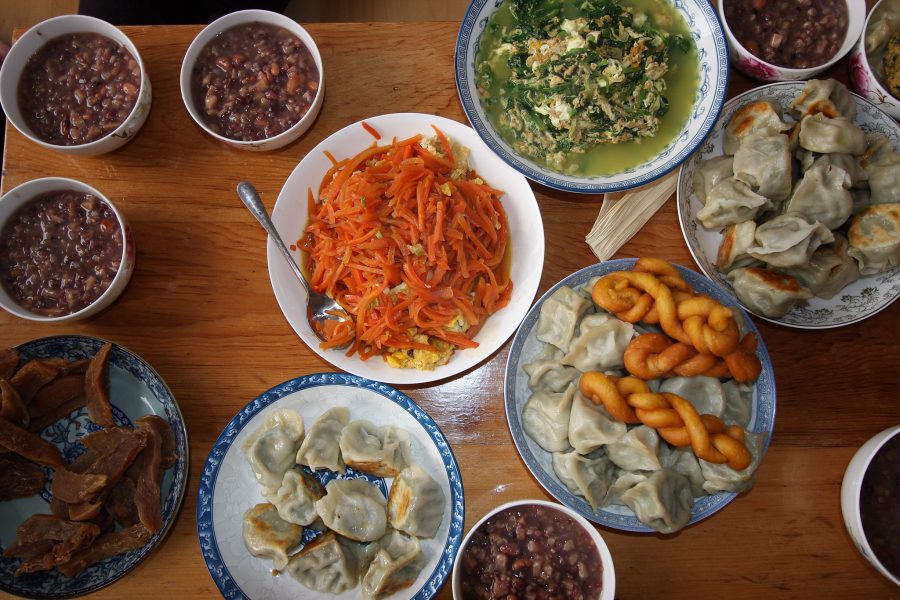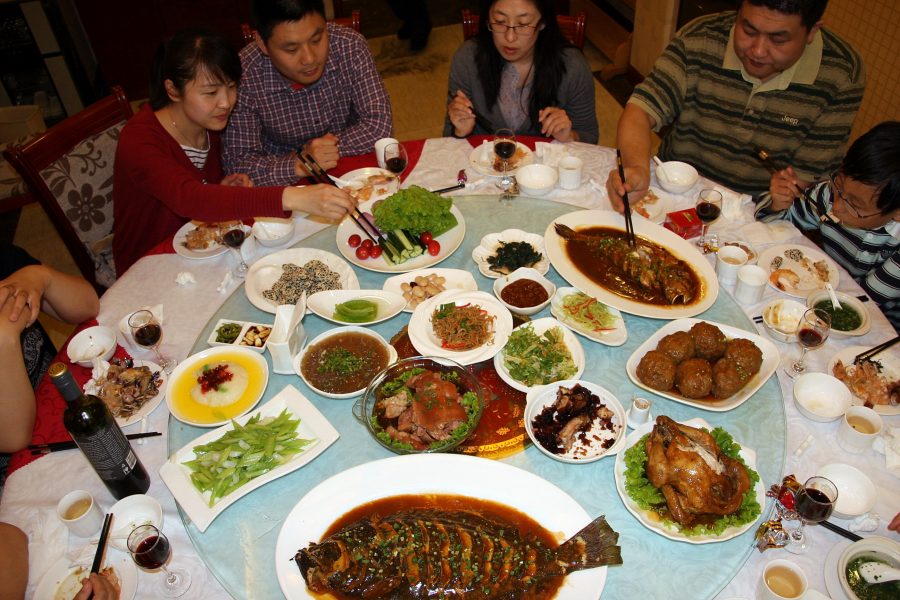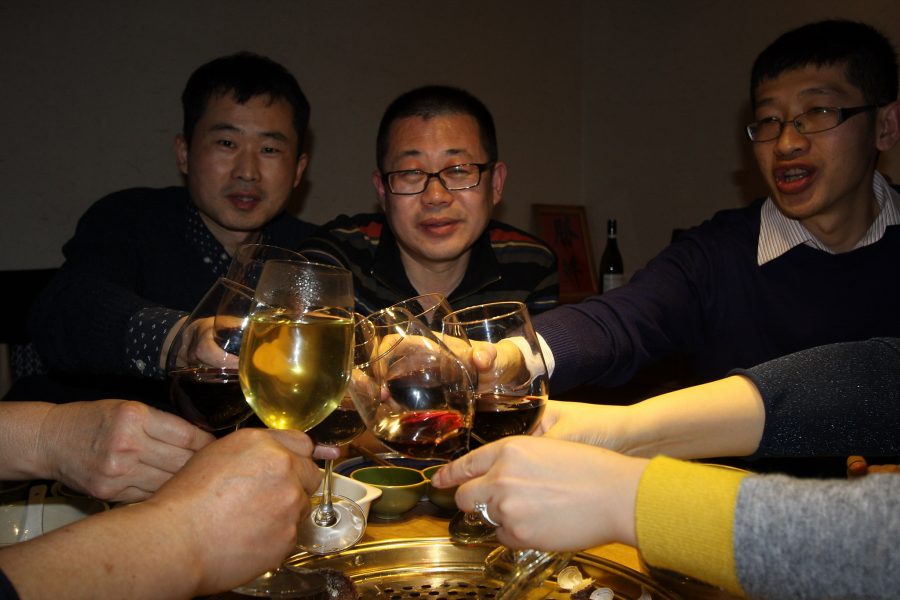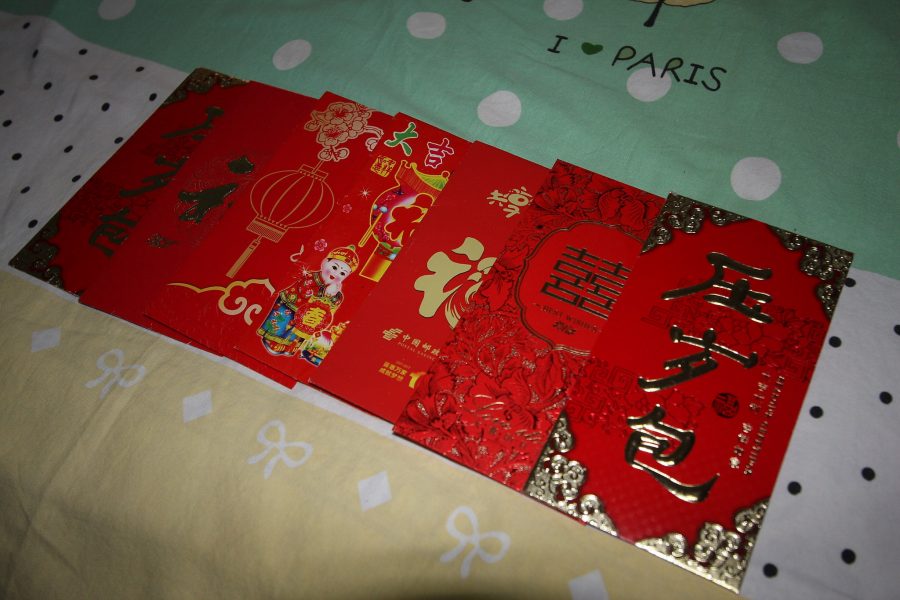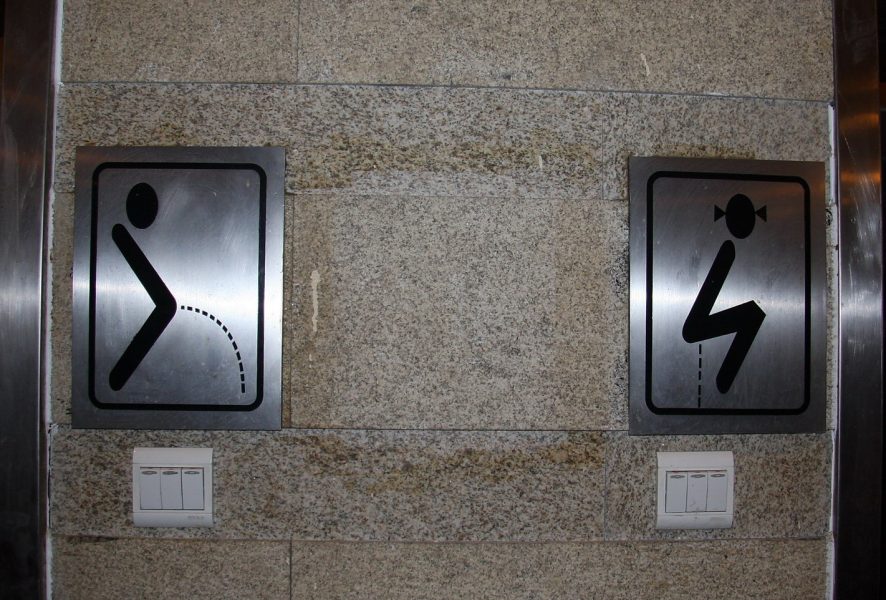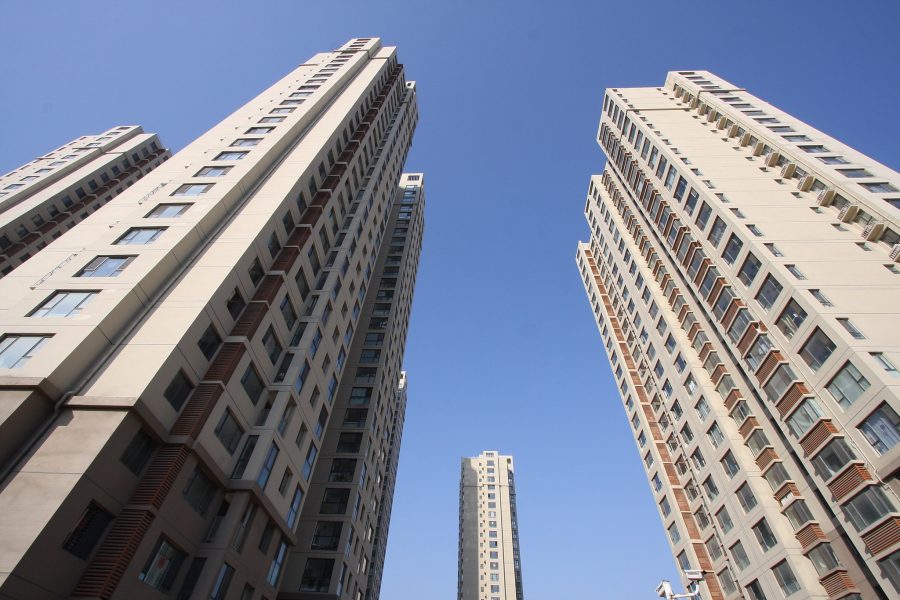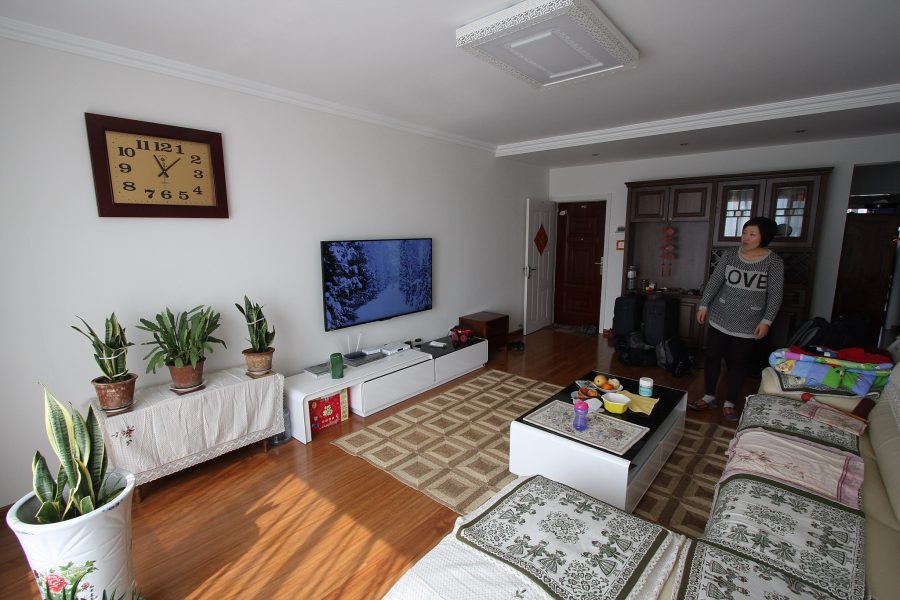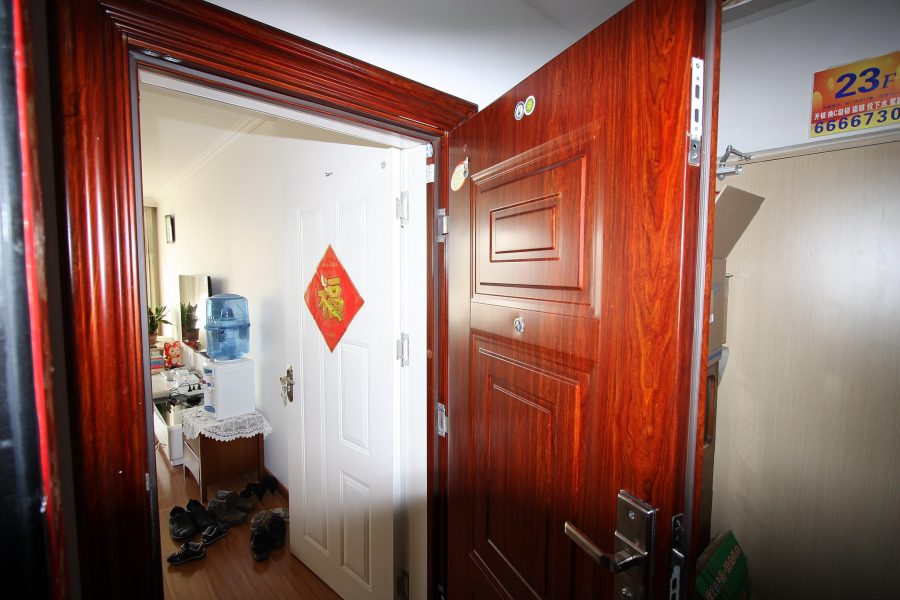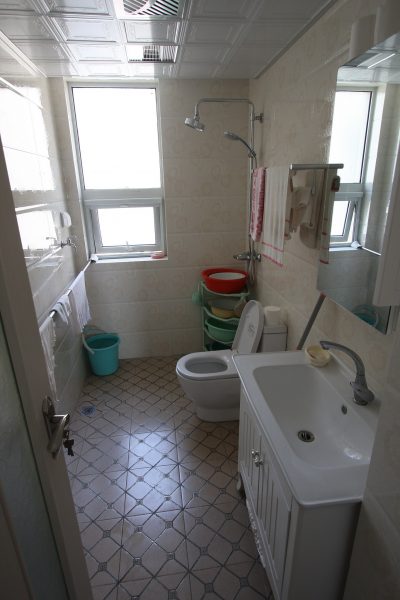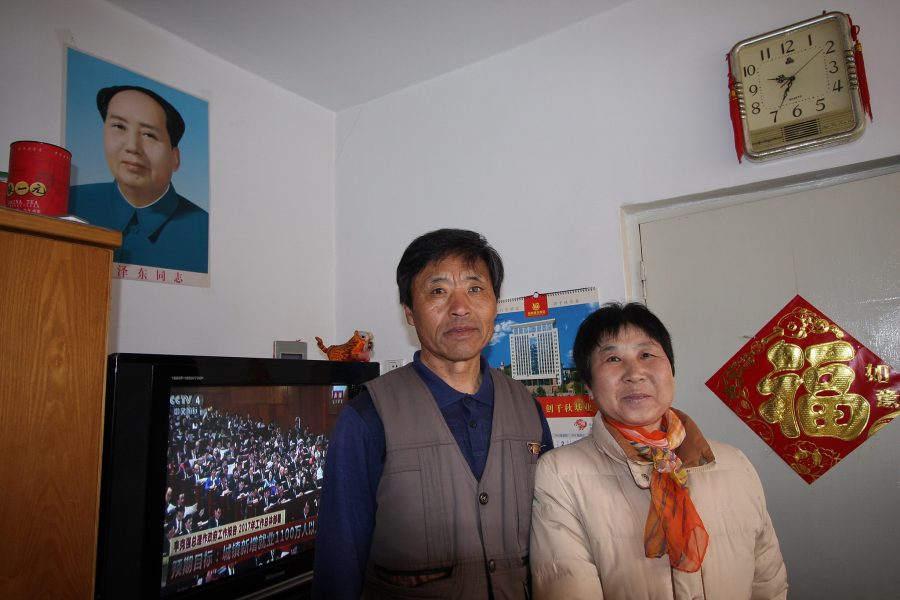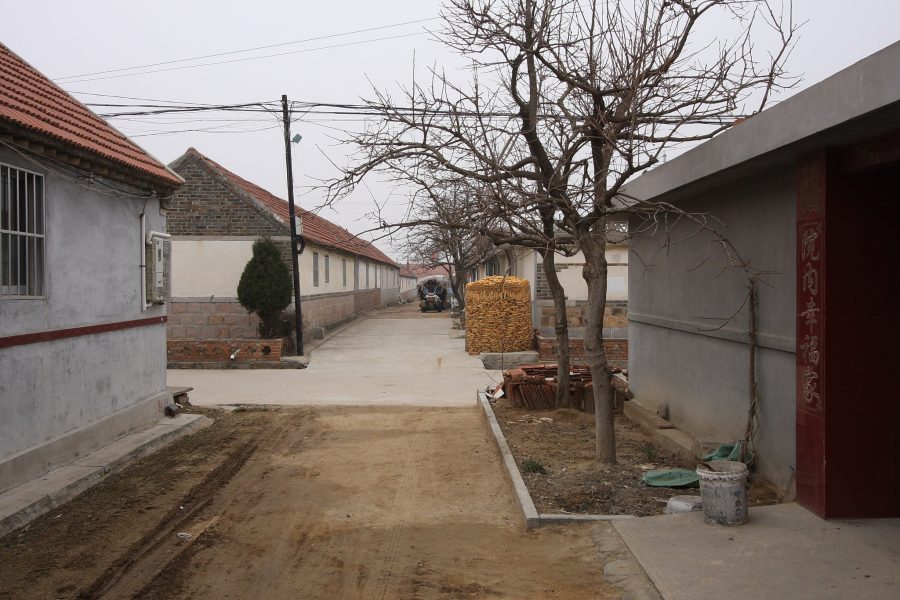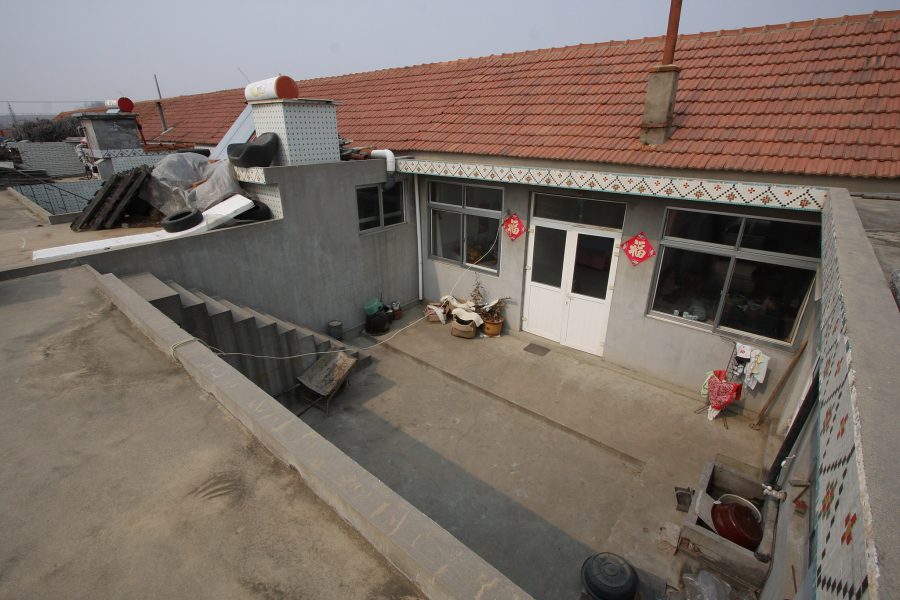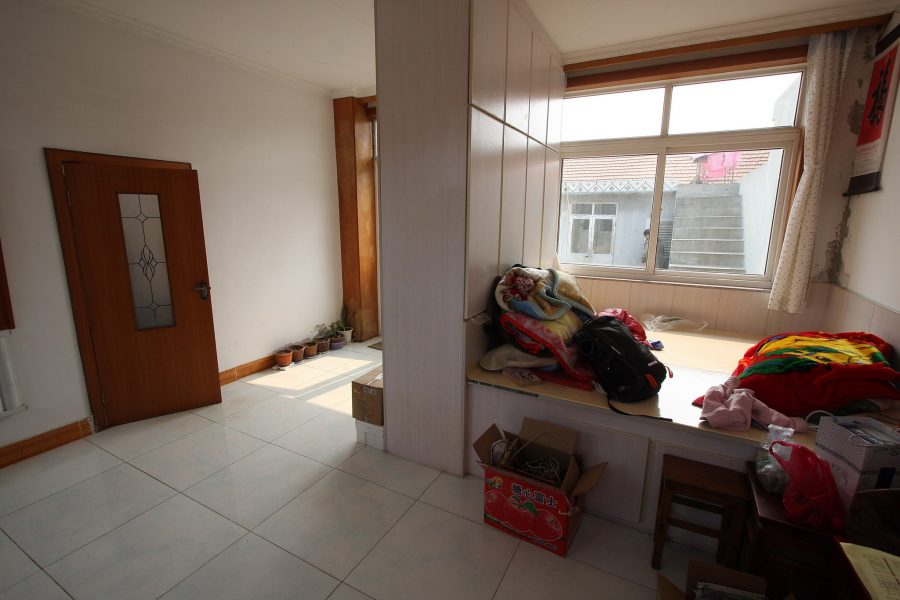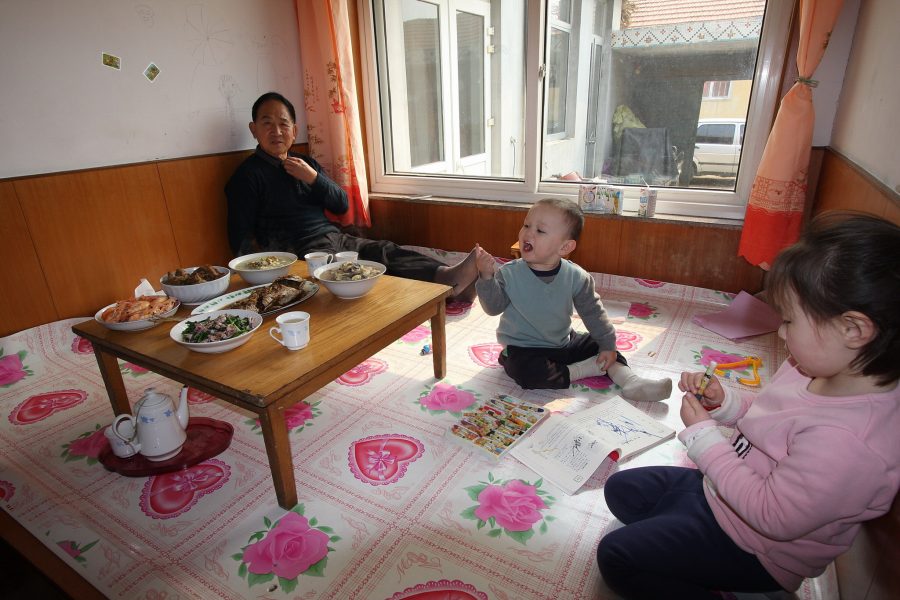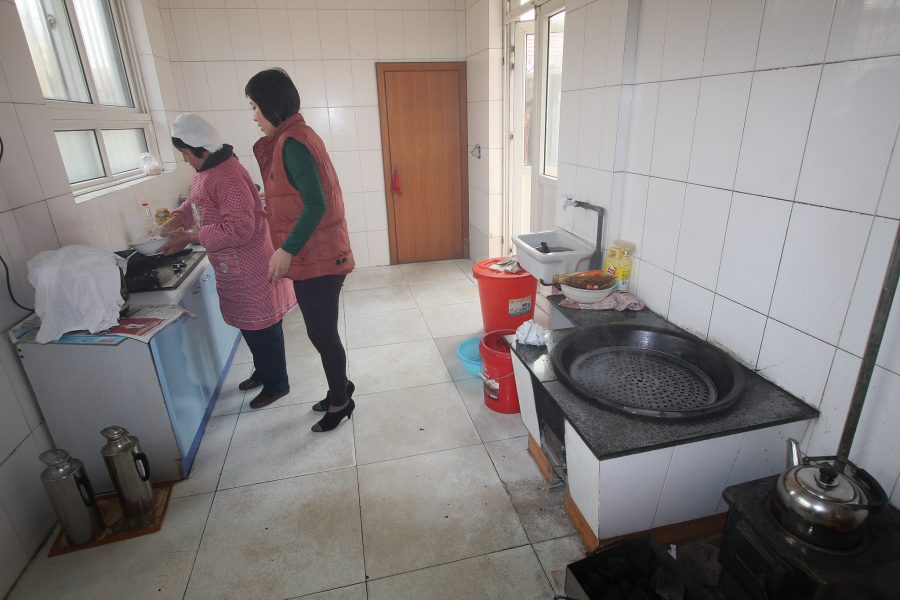13 Things Worth Knowing Before Visiting China

Shôn Ellerton, March 2017
Having been to China several times, I never fail to stumble upon something which causes either disbelief, frustration or sheer surprise. Perhaps, you have been invited to stay with a business acquaintance or maybe you will just be visiting friends or relatives. In any case, you may be introduced to enterprising individuals (some possessing a good knowledge of English) who wish to share a business opportunity with you (usually in exports and imports). In my case, it is visiting my wife’s relatives in the Shandong province; many who have other friends or relatives who want to share new business opportunities with me, particularly with the import and export trade. If you are just about to embark on your first visit to China, you may want to read some of my own observations and experiences.
Note: At time of writing this article, 1 Chinese Yuan was approximately equivalent to 20 cents AU
1. Internet Access (or lack of it)
This is the big one! Internet in China (not Hong Kong) is certainly not the Internet I am familiar with. I did not do my research properly and ended up not being able to access any of my personal email accounts; however, I was able to access my company email account through Outlook 365. China blocks out more than 3,000 mainstream websites including Google, Facebook, Youtube, Twitter, Instagram and Yahoo by what is amusingly called the Great Firewall of China. Unfortunately, I was not amused when I urgently needed to retrieve a bank number which I keep archived in two locations: a Gmail and a Hotmail account. Great! Hotmail isn’t blocked, so all good! But, Microsoft (not China) decided to block me and wanted further verification because I was logging in from a suspicious IP address (i.e. one coming from China). So, they gave me two options: send a text to confirm or send an email to my Gmail account. Obviously, the latter option did not work so I went looking for my phone, except the problem was, I accidentally left my phone at home; not something I would normally do. Let me tell you why I desperately needed the bank number: I forgot to lift the block on my credit card which disallows international payments to be made. I intentionally blocked this due to nefarious activity which had occurred from time to time on my account. At this point, I exhausted all other options: I could access my personal website but I did not plant the information there. Nor did I have it in any email from my work account. I did not bring my laptop so I could not ‘remote-desktop’ in through the VPN. After exhausting all options and hopping up and down furiously whilst shouting expletives about the injustices of the Great Firewall of China and how any business gets done in China, my wife managed to extract enough money from her Chinese bank account.
OK. So, in future, this is what I will do.
- Subscribe to a VPN, for example ExpressVPN. There is an element of risk here because, as of earlier this year, the Chinese ‘brain police’ have started a new initiative which will render VPNs illegal except those VPNs marked as ‘safe’ to use by the government. This means, of course, those useful VPNs may be blocked anyway and you will be paying a monthly subscription for nothing;
- Bring a small USB drive with you;
- Bring your mobile phone and ensure that your important online services are referencing this number should they need to send you a validation code;
- If you have international blocks on your credit cards, release them before you go;
- Set up alternative China-friendly email addresses. If you are using Hotmail, ensure that you reference another China-friendly email address. Microsoft services including Bing seem to be ok;
- If you have a NAS drive at home and you are able to run a local web browser on it, this works fine. This simply means that all your traffic will look as though it came from your home location. Just make sure you leave your NAS drive on and have auto-power-on enabled (especially if you live in areas of unstable electricity like I do in South Australia!). Sadly, many NAS drives have omitted browser features. If this is the case and you have another PC at home, keep the PC powered on and create a VPN (before you go of course) so you can remote desktop from it;
- If you have your own personal website, this is a great place to keep important documents. Just ensure that you have your security in place so no one else can access it;
- If you bring your work laptop and your company has remote desktop access or a browser through Citrix, use this to your advantage.
After some thought, perhaps the fact that, because much of the Internet is blocked out in China, this could add a competitive edge to your business dealings in China. Many Chinese use messaging services like WeiChat and rely on Baidu as the predominant search engine.
2. Sourcing Common Medication
Let me tell you. During the beginning of my last trip to China, I suffered through a series of backaches and headaches; probably trying to get used to the uncomfortable bed I was in and trying to listen in to conversations in Mandarin (not very successfully). If you think you can dash out to get some ibuprofen whilst in China, you are sadly mistaken. You would think Qingdao, a seaside city about the same size of Sydney, would be an easy place to source your common drugs; you know, the ones you can buy at your local shopping mall in Australia. There are plenty of shopping malls in Qingdao, many arguably better than you can find here in Australia; however, you won’t find a drugstore in them. Turned out that my wife found a small Chinese medicine shop in an obscure lane next to a bank. This proved to be a disappointment as all the medicine in the shop were made by unknown brands to me all being in Chinese. Seems that the drugs market is under the great thumb of Chinese control. The ‘ibuprofen’ I bought did nothing for me nor did its placebo effect. I would have given my right arm for a box of Nurofen that day! Make sure to pack your own headache tablets!
3. Visa to Get Into China
This should be obvious but I have heard of occasions where passengers were denied entry on account of not having the necessary documentation to go through immigration. Do organise your visa well in advance. I used an online service called Chinese Visa Application Service Center (www.visaforchina.org). Single-entry visas cost about $120 AUD but it may be worthwhile going for a multiple-entry visa if you are expecting to in and out of China frequently. Make sure your contact in China emails or faxes you a Letter of Invitation before you compile your paperwork for submission. I was informed that the email is simply enough; however, I prefer to have the inviting party attach a signed scanned letter of invitation.
4. Selecting Your Air Travel Plan
Avoid Chinese New Year if you can, unless you really want to join others in their celebrations. Tickets are easily double the price and, once in China, you will find that many people will be taking this as time off from their businesses. If you are planning to connect to a Chinese domestic flight, be very cautious of choosing an itinerary where the connecting domestic flight is less than three hours from arrival at your port of entry into China and departure time on your connecting flight. From experience, delayed flights are a common occurrence. On a flight to China back in 2012, I travelled from Melbourne to Qingdao via Guangzhou using China Southern Airlines. Facilities for fast-tracking people through immigration did not seem to exist, and I can assure you, the immigration officials manning the posts were indifferent whether you were going to catch your connecting flight on time or not. I might also add that the enormously large Guangzhou Airport is, not to put too fine a point on it, a most horrible airport replete with endless cold corridors and an awful layout which warrants the need to have an unnecessarily large number of escalators, lifts and steps to compensate for the poor layout. Choose your airline as well. Whilst China Southern Airlines is a fairly major airline, boarding the plane in Guangzhou usually involves taking a very crowded bus (instead of an air bridge) to the other end of the apron (which can be a very long way indeed). I do not like taking buses to board large planes at major airports, and nor should you. Try to make your final destination in China your first port of entry in China. Singapore and Hong Kong connect to many major cities in China whilst offering fantastic disabled facilities.
5. Speaking Mandarin
I am not linguistically gifted and struggle intensely to utter one sentence in Mandarin which is remotely intelligible to a Chinese speaker. I won’t bore you with the intricacies of the language, but Mandarin is notoriously difficult for most westerners. Unless you are sticking around the big international hotels in the largest of China’s cities or around international tourist destinations like the Forbidden City and the Great Wall, you won’t see much in the way of English. Yes, the younger generation have been learning English, but not in the same way as you would find a Scandinavian speaking English. I jest; but I have encountered better written and spoken English in some Scandinavian countries than what I have encountered by some of our native speakers in our own communities and workplaces here in Australia or in the UK. If you can make an effort to speak any Mandarin whatsoever, it is a real ice-breaker and you will be a real superstar. Do this in Germany, and you may be corrected on your imprecise grammar. I’m allowed to say this because I am half-German! Interestingly, China’s major TV networks often host talent shows where westerners are speaking in Mandarin, and they are, to my astonishment, incredibly popular receiving full-house audiences. Can you imagine an Australian or UK TV network hosting Chinese people speaking English? Yes, it is true that a substantial amount of business in China is conducted in English; however, this does not hold true for the vast untapped business opportunities amongst the ordinary Chinese populace. Unless you can speak fluent Mandarin or have a Mandarin-speaking spouse you can take with you, ensure that you have a translator which you organised (i.e. not arranged by the other person you are doing business with). It is likely that your Chinese business counterpart would have done the same.
6. Make Sure You Have Cash
During my last trip to Qingdao, I ventured into its largest bookshop (books are very affordable). Spanning no less than six floors, this shop was enormous and contained not just books, but clocks, electronics, maps and other items. I was baffled that credit cards were not accepted; however, this is quite often the case in China. Just make sure you have cash! And on the subject of cash, I have a deep mistrust of Chinese ATMs having once made a withdrawal transaction from an ATM in Beijing of the equivalent of $200AUD but, alas, no money coming out of the machine due to a fault. It appears that a rollback transaction did not occur when, after returning home, only to find out that the money was withdrawn from the account plus an additional handling fee. Get some Chinese Yuan beforehand.
7. Getting Around
If you are thinking of hiring a car and driving around China, you’re a braver person than I am! Although pinyin (alphabetisation of Chinese script) is becoming more and more used for road signage and directions, it is still quite often not present, and if so, it is written in small script underneath. Straining your eyes whilst negotiating Chinese traffic is not recommended.
Buses are extremely cheap (e.g. 1 Yuan go anywhere in Qingdao) and rail transportation relatively cheap if you can study the route beforehand in an English guide. Excellent high-speed rail networks are proliferating everywhere in China. I was amazed to discover that a new 300km stretch of high-speed railway was halfway completed during a space of months rather than years, the whole of the line being supported by a segmental concrete viaduct along with several long tunnels cutting through the rough terrain between Qingdao and Haiyang City to the north. Consider that the idea for such a scheme would still be floating around committee meetings in Australia for years before one length of rail would be able to be laid down!
8. Shopping
Shopping and food can be deceptively expensive in China, especially if you choose the fancy shopping malls (mainly sporting international brands) which seem to be springing up quickly in the larger cities. Many of these malls fail miserably transforming themselves to what can only be described as mausoleums with food courts only to be replaced by another glitzier mall further down the road.
Electronics and white goods are the same price, if not more expensive than those here in Australia. Seemingly simple devices like an air purifier (basically a fan, gasket and a filter) can easily cost around $1000 AUD equivalent to push enough air around for a medium-sized apartment. Most Chinese tend to buy new goods (including properties I might add) rather than buy second-hand, so finding an exchange or second-hand shop can be hard to find.
Imported products are very popular in China and many buyers are willing to pay considerably more for them. I fully understand this when it comes to milk powder or food products, but other day-to-day items? For example, shoes. Well-known brands of shoes cost the same in China as they do in Australia. Most seem to be made either in Bangladesh or Vietnam, but, no matter; at least they are not made in China. I bought some shoes made in China for a fraction of the price. Extraordinary.
Buying groceries in Chinese supermarkets is generally inexpensive and an experience everyone should try at least once. Taking the model from the French hypermarket, many (e.g. Carrefour and Spar) are built on a massive scale hosting a bewildering array of food choices. Alcohol and tobacco can be bought here, but not aspirin!
If you want a real bargain for food shopping, try walking around the nearest wholesale market. For example, in Qingdao, I can walk away with oysters for around $2 AUD equivalent a kilo.
Locating shops selling sundry items such as cables, gadgets and accessories (e.g. a Chinese equivalent of a Jaycar or a Radio Shack) can be frustrating. Such items are usually bought online but this is really of no value if you are just visiting. So, make sure you pack all your cables and adaptors beforehand.
Alcohol and tobacco is sensibly priced in China. Imports such as scotch whisky and French cognac command about the same (if not less) price than what you can source in Australia. A slab of Qingdao beer in the supermarket costs $10AUD and a 2-litre bottle of 56% drinking alcohol (ethanol) costs a mere $5AUD. Wine is not so good in China and if you can bring over a nice bottle of wine as a gift, this is enormously appreciated in China (especially if it does not have the mandatory re-labelling required for Australian imports into China). A 10-pack carton of cigarettes costs between $20-$60AUD depending on the quality of the tobacco. I despise the high taxation of cigarettes and tobacco set in Australia as a cash cow rather than the altruistic measure of reducing drinking and smoking-related health issues. I’ve seen more layabouts drinking cheap alcohol (purposely tainted with salt or some other poison) on the streets in Adelaide. How altruistic indeed.
Although not strictly shopping but more of a service, if you need any professional photography done (e.g. portraits, family events), absolute bargains exist here. Just make sure you have a USB stick with you. Many photo studios have an interesting business model that enable you to spend quite some time with a photographer and then have someone else to show you the pictures on a computer which you can then select and pay for individually. This happened to me in the medium-sized town of Rushan. At first, I thought this was extortionate until I found out how low the price was. Each selected image only cost $2AUD each and I selected the five best although you are not obliged to buy any if you don’t like any of them.
9. Food and Drink
China is a vast country and I can only speak from experience from my visits in the northeast of China in Beijing and the Shandong Province.
If you are proficient in the items below, you should be ok.
- Enjoy eating rice or noodles;
- Using chopsticks (kuai zi) (not difficult to learn)
- Eschewing the consumption of dairy products (except yoghurt)
The most popular drink is, undoubtedly, warm water or tea (of which there is an enormous variety to choose from). Chinese generally do not like cold drinks and coffee although more and more younger and cosmopolitan Chinese enjoy ice-cold drinks and coffee served in relatively-expensive western fast-food outlets such as KFC, Starbucks (I can detect a chorus of cringes from South Australia’s coffee connoisseurs) and McDonalds. English-style tea with milk is generally unheard of and generally not palatable for many Chinese.
Restaurant food is generally very good and relatively cheap in China, although hygiene levels vary enormously from place to place. The one item which tends to be more expensive in China is red meat (with the exception of pork), so you could be disappointed if you find only a few bits of beef in your beef brisket noodle soup. Some of the best restaurant Chinese food I’ve had comes from those overcrowded popular places you find in the side street.
Unless you are staying at an international hotel, breakfast may be a challenge to some westerners. Eggs are the exception. Cereal with milk, juice, bacon, pastries, bread, toast, hash browns, pancakes, French toast… nope. The bread and bacon has a definite acquired taste and not at all like what westerners are used to. Although there are significant regional differences, in northeast China, breakfast generally consists of a substance called xi fan, consisting of a mixture of rice and millet along with other grains and beans. For my palate, it has a rather bland taste but can taste reasonably nice with a spoonful of brown sugar. Ba bao fan is another type of porridgy concoction but containing a more exotic of mix of beans giving it a purplish hue. For those not familiar with this, it could come across as looking rather unappetising; however, it is quite inoffensive, wholesome and highly nutritious. Rather than use a spoon, the traditional way of eating this is to lift your bowl to your mouth and push the contents using your chopsticks into your mouth, which can be a little tricky if you’re not used to it. The alternative to xi fan is good old-fashioned plain steamed rice, not a problem for most (unless you don’t like rice!). Soft-boiled eggs are not popular but there is no shortage of hard-boiled, scrambled, or fried eggs. Another welcoming item which may be offered for breakfast include steamed or fried dumplings (jiao zi) or bao zi, a largish doughy wrap filled with anything from pork meat to sweet red bean paste as in the photo below.
Below is a typical simple breakfast comprising of bowls of xi fan and one or two other side dishes; in this case, some leftovers from last night’s dinner: pickled cucumber and a beef and broccoli dish.
A far more substantial family breakfast (made by my father-in-law’s partner) is shown in the photo below. There are three bowls of ba bao fan in the top-left corner, dried sweet potatoes in the bottom-left corner, fried and steamed dumplings (from the night before), a green vegetable egg soup dish with shrimp near the top right, and amongst the dumplings, deep-fried dough twists (like an unsweetened churro).
Another challenge for many westerners is negotiating food with small bones or other inedible objects embedded into it. This is particularly true with seafood. The Chinese seem to have this amazing ability to separate crushed bones and foreign objects using their tongues with ease whilst many westerners are spitting out half the food; a practice which is, at best, embarrassing and wasteful.
Other than that, food variety in China is enormous and you should try, at least once, some of the more unusual dishes if offered. For example, I was offered a steamed giant sea snail of which you had to gingerly pry from the shell. What came out can only be described as an inordinately long piece of slimy nose snot; however, I was pleasantly surprised to find that the taste was quite palatable indeed.
10. Being the Guest
China is extremely food-centric and, no doubt, you will be offered a series of meals and offerings by your Chinese hosts. Some are offered at your host’s home, but most are arranged in the local restaurant (sometimes with their families) around round tables adorned with lazy-susans within individual ‘VIP’ rooms.
You may note that seating arrangements are very important in China, and if you are the guest of honour, make sure you respect this and ensure that you are seated as directed. You will most likely be served food by your host directly onto your plate followed by your host loudly stating, ‘chi chi! (chur chur!)’ meaning ‘Eat!’. Don’t be afraid to bite into a fried silkworm. They’re quite tasty! If you’re full, remember the phrase, ‘chi bao le (chur bao lur)’, meaning ‘I’m full’. As for drinks, there will be plenty, usually in the form of beer or bai jiu (Chinese white liquor) although there may sometimes be wine (usually always imported as Chinese wine is generally pretty awful). They will serve you and will keep you topped up. Wait until they say ‘gan bei!’ and clink their classes and try to clink your host’s glass as low as possible as a sign of respect. This may be hard as your host will try to do the same only to find that you’ve hit the top of the table instead!
Be warned, however. Unlike western cultures, where the host will usually drink the same amount as you, they may ‘secretly’ not be drinking as much as you. In fact, it is quite often the custom to ensure that the guest receives more than the host which could leave to embarrassing situations where you may have had too much and the host, not enough! Bai jiu (the most famous being Mou Tai) is about as ‘dangerous’ as absinthe. Unless you know how to drink very strong spirits (i.e. drink while on the exhalation stroke of your breathing) or you are drinking in a safe place with people you trust, keep away from this stuff as this can wipe out your memory cells within the next few hours. Keep drinking copious amounts of tea to keep fluids up!
Your host may spend a considerable amount of his or her own time and expense to show you around the local vicinity. In every case I offered to help with the expense, my host blatantly refused. ‘No no, we won’t be having any of that!’ Naturally, you would want to reciprocate this hospitality should your host come to visit you; however, this does not happen very often in my case. I should like to mention one thing regarding this. If you host works for the government, military or the police force, it is unlikely this would happen as passports are generally not granted to Chinese citizens in these positions. They are, in effect, prisoners within China until they retire.
Giving your host a small gift from your homelands is always widely appreciated; however, just ensure that the packaging is as intact as possible. Australian wine and wool are popular choices for me. Boxing or gift-wrapping (not in a white or black colour) is significant, so if you can do this, it is worthwhile. Bringing goods into China is generally, quite easy. So far, I’ve never had a suitcase checked. Your host may give you something in return, but be warned of your home country’s rules on bringing foreign goods in. Australia is particularly onerous on this matter, especially with tobacco (a ludicrously low tax-free amount of 50 cigarettes) and many natural products, which you will probably need to chuck in the customs bin on arrival.
One more really important note on gift-giving. If you have been invited to a celebration such as a new birth, marriage or some other important family occasion, do obtain some empty red envelopes (hong bao) and slip in some (new, if possible) 100-yuan notes.
There is no stigma or crassness involved in giving money in Chinese culture as there is in English-speaking cultures. The amount you give varies from what you can afford, but a typical amount given for a new birth is around 1,000 Yuan (approx. $200AUD). If you think you may be going to such an occasion, try getting some hong bao and some crisp 100-yuan notes beforehand.
11. The Conveniences
Not entirely sure if the establishment above (taken at a popular seaside restaurant in Qingdao) has a sense of humour but the signs look fairly official. Public conveniences is one facet of life that China fails miserably on and can only be likened to being the antithesis of Germany or Japan in this respect. One major bit of advice, carry a roll of toilet paper with you. Even in respectable restaurants, the conveniences are an absolute disgrace and look like they haven’t been cleaned during the last month or two. You might have heard of the ‘Eastern Squat’ or ‘Squatting Pan’. Unless you can hold out until you get to your hotel room or your host’s apartment or house, get used to these. The interesting thing is this: most Chinese prefer squatting pans to toilets in public places and this is how I know. At a Chinese airport, there were (surprisingly clean) conveniences sporting both toilets and squatting pans and, interestingly, there were people queuing up to use the squatting pans even though the toilets were vacant, clean and free to use.
12. City Apartment Living
If you are staying at your friend’s, relative’s or host’s apartment in the city, there are a few interesting quirks and oddities worthy of some mention.
Many high-rise apartment interiors I’ve visited (many of quite average social-economic backgrounds) are decked out quite comfortably despite the often-bleak exteriors.
Build quality of doors, windows and other internal fixtures for apartments built within the last 10 years is often remarkably high. Many windows are of the German variety: well-built, double-glazed and an opening mechanism which allows you to either pivot the window from the top or open as a door. Internal doors are solid and don’t rattle. Companies like Pan Pan sell exterior doors for apartments which are built like a proverbial brick sh*thouse with serious security latches and keylocks. Don’t lose your key because you won’t be able to break in! Seriously, this puts Australian build quality to shame.
Water provided by tap is generally undrinkable as it has been heavily doused with some sort of antiseptic detergent which you can often clearly smell and taste. Most residents invest in an advanced multistage water treatment unit (~$1-2k AUD equivalent for supply & install) which can be neatly fitted under your kitchen sink, the most popular brand being by A.O. Smith. These treatment units work remarkably well and are, in my opinion, essential.
Air quality within some cities is dangerously polluted and some apartments are fitted out with air filtration systems including climate control to adjust for temperature and humidity extremes. Many apartment owners buy portable units and hope for the best.
Bathrooms can be a little unusual insofar that shower curtains and cubicles don’t seem to be all that popular and one usually showers next to the toilet only to have to mop up all the excess water lying about after use.
If you like to read in bed, consider bringing a portable bedside light. I know it sounds overkill but very few people seem to have bedside lights and standalone lamps in their apartments instead relying on bright multifunctional (colour, brightness) ceiling lights.
Carpets are generally unpopular and every one of the apartments I visited have spotlessly clean wooden floors, many of which have underfloor heating. Do take off your shoes when entering and, if offered any slippers to wear, please do. Being a fresh-air fiend, one thing I experienced is that most apartment residents tend to prefer having the temperature a bit on the high side (especially in winter) within their apartments.
In the apartment, it is likely that you will spot the enormous modern flat-screen TV (60”+). Chinese TV broadcasting is quite impressive; many channels boasting ultra-high resolution which looks astonishingly clear on these TVs. Very few channels have English subtitles (CCTV4 sometimes have them) and I found only one English-speaking channel (CGTN) available. CCTV9 have, by far, the best non-stop documentary and nature programs I’ve encountered on public TV.
13. Rural House Living
If you are fortunate enough (or unfortunate depending on the circumstances) to experience living in a typical village house, these are some of the things you may encounter.
Many rural villages have a grid arrangement of small roads and narrow alleys with terraced (adjoining) courtyard-style homes. The most common arrangement I found is that you walk into a front courtyard and then towards the main entrance in the centre.
The largest room is usually the first room and is often combined with an alcove containing a large elevated wooden platform which serves as a bed (huo kang). Hot coals can be placed underneath to warm up the kang.
Towards the right (photo below), is another smaller room with another kang serving as a bed and an area for family members to get together. A small wooden table is placed on top of the kang for meals while the family sit down, eat, chat and watch the daily news on TV. This kang can be heated underneath using the the hot flue of the kitchen stove from the neighbouring room on the right-hand side.
The kitchen and pantry usually serve as the right-hand section of the courtyard home and, in most cases, the kitchen is a fairly simple affair with one fire-driven stove, a sink and a small cupboard containing the necessary tools and utensils required for cooking and eating. I, very often, like to joke with my hosts that they can create an amazing banquet from such a basic kitchen whereas many of us here in Australia will just pop frozen fish fillets into the oven in the fanciest and most modern of kitchens.
These courtyard homes have flat roof areas accessible by a set of concrete steps on the left-hand side of the courtyard. These areas are often used for laundry or for drying or preserving crops collected from the crop fields surrounding the village. The convenience (WC), a not very pleasant experience, is usually located under these steps and comprises of a basic unlit, unheated squatting pan with no running water save that of a shared washout channel amongst the row of houses.
As mentioned above, this is a typical arrangement. I’ve been to far more basic abodes sporting simply two rooms over bare ground and an open wood-fire stove near the main entrance and I’ve also been to much larger grander European-style households in the middle of the countryside…remnants of a former era.
Conclusion
I hope you enjoyed reading this. China is a fascinating country to visit and I always look forward to my return. If you have any similar stories to share, particularly differences in other parts of China, please share.



